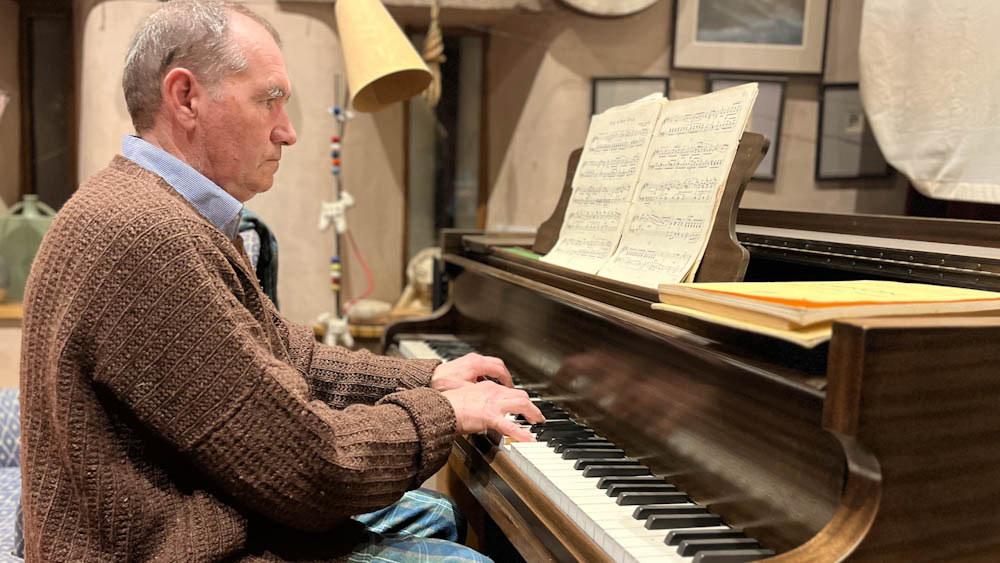As former BBC presenter Jeremy Paxman says Parkinson’s makes him wish he hadn’t been born, find out how another man maintains a positive outlook and faces the challenges of the disease with resilience and determination.
Fingertips danced across the strings, the violin producing a haunting melody that filled the concert hall. As Jeremy Harris poured his heart into each note, the bow in his right hand moved with practised grace. Suddenly, an unsettling tremor seized his hand, and he could no longer keep up with the music. The melody stumbled before finally falling silent from his position.
Jeremy is deeply disturbed by the constant trembling of his hand. It is hard to ignore and makes everyday tasks difficult. He is in his mid-60s and it is the last thing he thinks about when he goes to bed and the first thing he thinks about in the morning.
“I can’t hold a cup of tea because of the tremor, and sometimes it spills. It’s worse when I’m in a stressful situation,” he says. “I was doing a talk about pear wine last autumn and I couldn’t hold the microphone still. It was shaking everywhere. It’s embarrassing because people think you can’t control yourself.”
Like a growing number of people facing early signs of Parkinson’s, Jeremy decided to seek treatment. After consulting his doctor and being diagnosed with Parkinson’s, he tried medication. While some treatments provided temporary relief, the tremor symptom persisted.
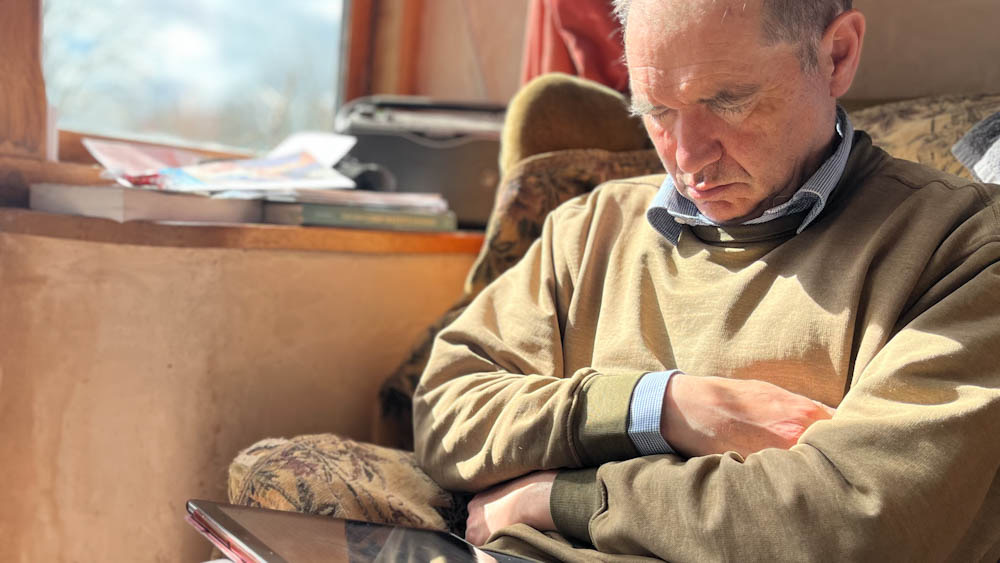
Parkinson’s disease is a progressive neurological disease that affects an estimated 145,000 adults in the UK and more than 8.5 million people globally, according to the World Health Organisation. While some people experience only mild symptoms, for many others the disease significantly disrupts daily life and reduces mobility and independence.
Despite the dramatic change in Jeremy’s life following the onset of symptoms, he remains resilient in his fight against Parkinson’s. His approach to living with Parkinson’s is in stark contrast to that of former BBC presenter Jeremy Paxman, who has spoken out about his frustrations and bleak outlook with the disease.
Parkinson’s is hard, but life is still worth living.
Jeremy Harris
In contrast, Jeremy Harris finds solace in his community and hobbies. “Parkinson’s is hard, but life is still worth living,” he says. He spends his Thursdays playing table tennis with his wife, which helps him with his hand-eye coordination and his balance.
Unlike other times when the tremor overshadowed every moment and left him feeling exposed and vulnerable, playing table tennis gives Jeremy a sense of control and normalcy.
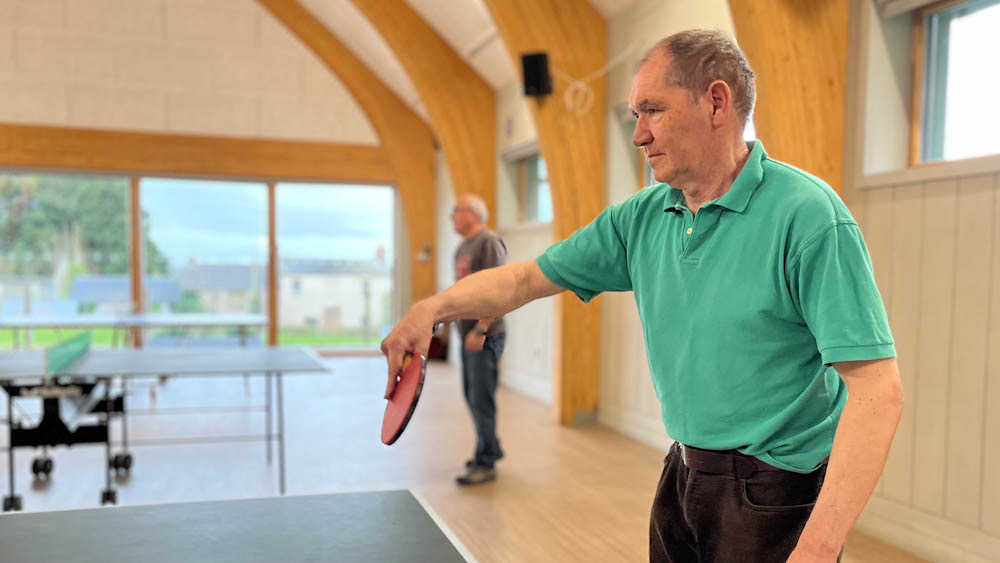
On other days, he attends Conductive Education classes, a specialised exercises designed to improve the motor skills and independence of people with neurological disorders.
It is nice to have exercise classes and a support group, because they tell us something about the disease that we haven’t thought about.
Jeremy Harris
There are 5 or 6 people in Jeremy’s exercise class and some of the members face severe challenges. “One person can’t walk without help and has ‘freezing’, which makes it difficult for him to move his limbs. It is very sad. He speaks very little and his face is always withdrawn,” says Jeremy.
In the class, Jeremy learnt that the handwriting of people with Parkinson’s tends to get smaller, but that continuing to write by hand can help alleviate this.
In addition to these classes, Jeremy practises Tai Chi regularly. “I went to a Tai Chi class in the nearest town, Monmouth. I did a lot of waving and breathing,” he says. “ I do Tai Chi at home now. It’s good for my movements.” Jeremy also plays piano in the evenings on a few occasions, which is good for his brain.
However, Jeremy acknowledges the impact of Parkinson’s on his daily life. “My balance is not as good as it used to be. It’s difficult to negotiate narrow spaces, so I have to be very careful. Some people would fall over, I haven’t fallen over yet, but it will happen one day,” he says.
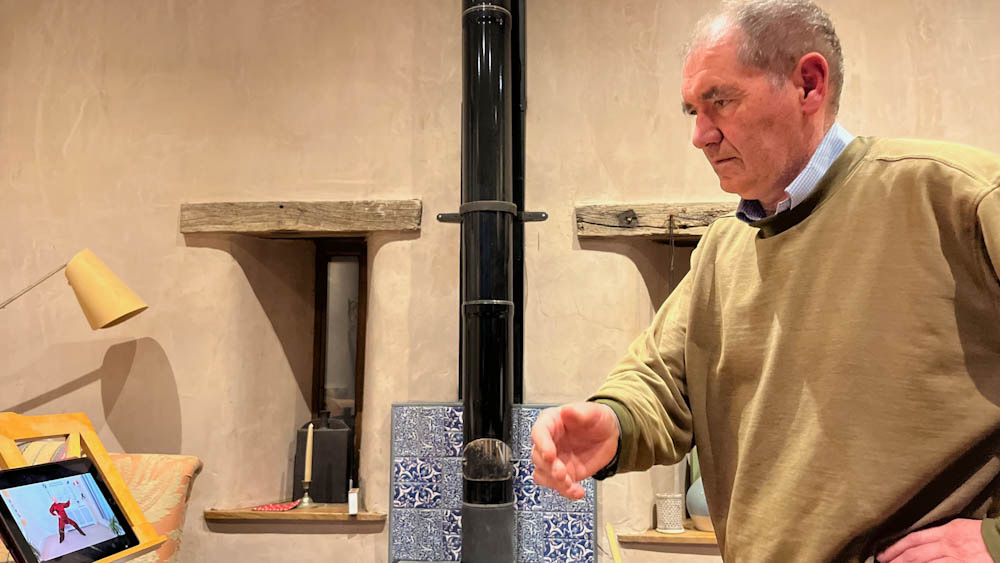
Parkinson’s disease presents with a variety of symptoms, ranging from sleepwalking during vivid dreams, to difficulty controlling saliva, to mental health problems such as depression and anxiety. There is currently no cure for Parkinson’s, but therapies such as medication, surgery and rehabilitation can help to reduce symptoms.
Working with my hands and being outdoors helps me stay focused and keeps my spirits up.
Jeremy Harris
Despite extensive research, the exact cause of Parkinson’s remains unknown. Jeremy and his wife Clare speculate that his Parkinson’s may be linked to the stress he has experienced throughout his life. However, since retiring as a primary school teacher, Jeremy has continued to run his small fruit orchard and hasn’t let his little piece of another woodland go to waste either.
He finds therapeutic value in continuing to manage his small orchard, where he produces apple juice, cider and pear wine. In addition to these tasks, he does some woodland work, such as cutting wood with a machine to prepare for winter reserves.
These activities help to maintain both his physical strength and his mental well-being. “Working with my hands and being outdoors helps me stay focused and keeps my spirits up,” he says.
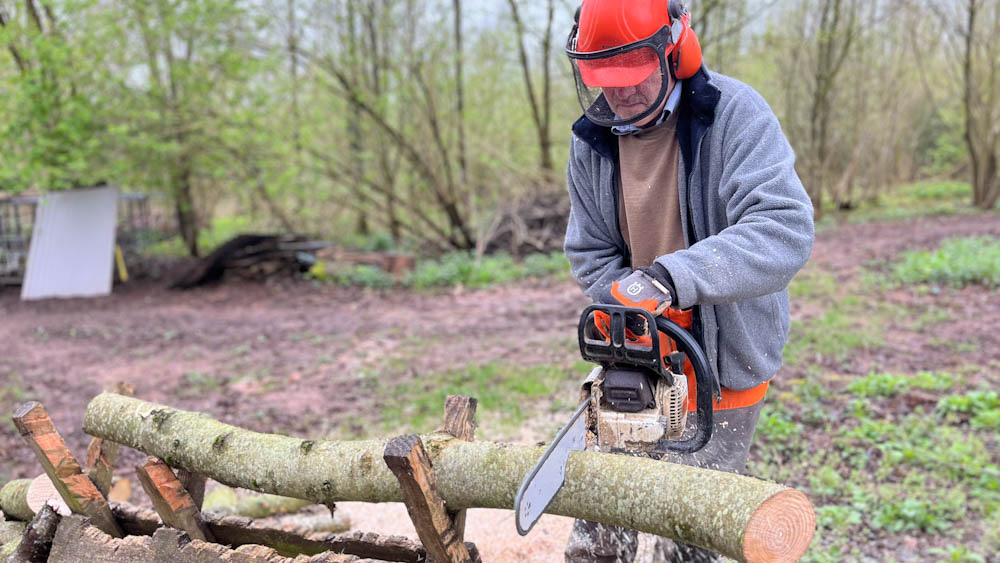
Jeremy started feeling tired and anxious two years ago. He initially attributed these symptoms to work-related stress, but found little relief after leaving his job. Since then he has reduced his workload in the orchard.
He says, “I struggle to carry the bottles of juice and cider from the production area to the storage area because I don’t have the energy. I can’t work as much as I used to.”
Luckily, he can get help from volunteers with his orchard work every year. Last year, volunteers helped him make lots of drinks. But he plans to plant more apples and make less juice next year.

During the week I was volunteering in Jeremy’s orchard, I accompanied him on a trip to buy fish and chips. It was during this drive that I noticed his hands trembling as he took the wheel. Jeremy told me that his arms often hurt when he drives because he grips the wheel so tightly.
“I also noticed that sometimes my muscles would suddenly jerk my arms out,” he says. “If it happened often, it could be dangerous to drive. But it’s very rare. It is a risk, so I have to renew my licence every three years.”
Jeremy also mentioned that he experiences daytime sleepiness. He likes to relax in a chair, read and have a cup of tea after lunch. However, he often falls asleep easily and extends his lunch break to an hour.
In addition, he has to struggle with back pain, which he believes is related to Parkinson’s disease. “It’s particularly bad when I wake up in the morning,” he says. “I have also noticed an increase in coughing when I drink, as it sometimes goes down the wrong way. It will probably get worse.”
Jeremy’s experience of Parkinson’s has taught him the importance of community support and adaptability. Despite the ongoing challenges, he maintains a positive outlook, largely due to the strong network he has built around him.
“At first, I wanted to pretend nothing was wrong. But after speaking with professionals and receiving support from specialist nurses, I realised how many people care and are willing to help,” Jeremy says.
However, the physical symptoms continue to evolve. Recently, Jeremy has been experiencing other health problems, such as stomach rashes and a hernia, which he fears could be complications of Parkinson’s. “It’s difficult because I’m not sure if these problems are directly related to my Parkinson’s, or if they’re something else like shingles,” he says.
Reflecting on his journey, Jeremy offers advice to others facing similar challenges: “Don’t let Parkinson’s get you down. You can still enjoy life and do the things you love, just maybe in a different way. And remember, you’re not alone, there are lots of support groups and resources that can make a big difference. It’s also a good way to meet new people.”
